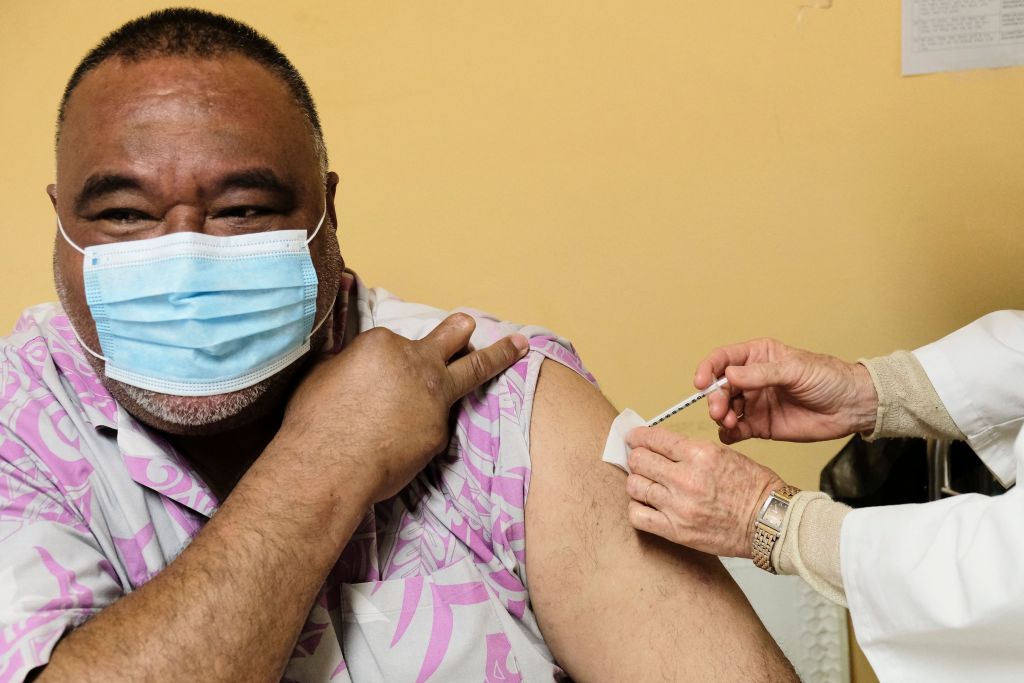The COVID-19 risk for vaccinated people is roughly equal to 'riding in a vehicle,' recent data suggest


A free daily email with the biggest news stories of the day – and the best features from TheWeek.com
You are now subscribed
Your newsletter sign-up was successful
The odds of a vaccinated person getting sick with COVID-19 have changed since the more transmissible Delta variant came to dominate the U.S. pandemic, but probably not as much as you think, David Leonhardt writes in Tuesday's New York Times. In July, the Centers for Disease Control and Prevention reported the "terrifying fact" that "vaccinated people with the Delta variant of the COVID virus carried roughly the same viral load in their noses and throats as unvaccinated people," but newer data "suggests the true picture is less alarming."
Statistics from Utah, Virginia, and King County (Seattle), Washington — three areas that report detailed data on COVID-19 infections by vaccination status — "are consistent with the idea that about 1 in 5,000 vaccinated Americans have tested positive for COVID each day in recent weeks," Leonhardt writes, and in areas, like Seattle, with high vaccination rates, social distancing, and mask usage, the odds are "probably less than 1 in 10,000."
The risks aren't zero — as Axios' Felix Salmon notes, a 1-in-5,000 risk every day works out to about a 7 percent per year chance of getting sick from COVID-19. And Leonhardt waves off the undiagnosed breakthrough cases, because they are "are often so mild that people do not notice them and do not pass the virus to anyone else."
The Week
Escape your echo chamber. Get the facts behind the news, plus analysis from multiple perspectives.

Sign up for The Week's Free Newsletters
From our morning news briefing to a weekly Good News Newsletter, get the best of The Week delivered directly to your inbox.
From our morning news briefing to a weekly Good News Newsletter, get the best of The Week delivered directly to your inbox.
But the reality is that "the risks of getting any version of the virus remain small for the vaccinated, and the risks of getting badly sick remain minuscule," Leonhardt writes. "In Seattle on an average recent day, about one out of every one million vaccinated residents have been admitted to a hospital with COVID symptoms. That risk is so close to zero that the human mind can't easily process it. My best attempt is to say that the COVID risks for most vaccinated people are of the same order of magnitude as risks that people unthinkingly accept every day, like riding in a vehicle."
You can read Leonhardt's entire case — and his explanation about why viral load "can end up being irrelevant" if you're vaccinated — at The New York Times.
A free daily email with the biggest news stories of the day – and the best features from TheWeek.com
Peter has worked as a news and culture writer and editor at The Week since the site's launch in 2008. He covers politics, world affairs, religion and cultural currents. His journalism career began as a copy editor at a financial newswire and has included editorial positions at The New York Times Magazine, Facts on File, and Oregon State University.
-
 How the FCC’s ‘equal time’ rule works
How the FCC’s ‘equal time’ rule worksIn the Spotlight The law is at the heart of the Colbert-CBS conflict
-
 What is the endgame in the DHS shutdown?
What is the endgame in the DHS shutdown?Today’s Big Question Democrats want to rein in ICE’s immigration crackdown
-
 ‘Poor time management isn’t just an inconvenience’
‘Poor time management isn’t just an inconvenience’Instant Opinion Opinion, comment and editorials of the day
-
 Trump HHS slashes advised child vaccinations
Trump HHS slashes advised child vaccinationsSpeed Read In a widely condemned move, the CDC will now recommend that children get vaccinated against 11 communicable diseases, not 17
-
 A fentanyl vaccine may be on the horizon
A fentanyl vaccine may be on the horizonUnder the radar Taking a serious jab at the opioid epidemic
-
 Health: Will Kennedy dismantle U.S. immunization policy?
Health: Will Kennedy dismantle U.S. immunization policy?Feature ‘America’s vaccine playbook is being rewritten by people who don’t believe in them’
-
 How dangerous is the ‘K’ strain super-flu?
How dangerous is the ‘K’ strain super-flu?The Explainer Surge in cases of new variant H3N2 flu in UK and around the world
-
 Vaccine critic quietly named CDC’s No. 2 official
Vaccine critic quietly named CDC’s No. 2 officialSpeed Read Dr. Ralph Abraham joins another prominent vaccine critic, HHS Secretary Robert F. Kennedy Jr.
-
 This flu season could be worse than usual
This flu season could be worse than usualIn the spotlight A new subvariant is infecting several countries
-
 FDA OKs generic abortion pill, riling the right
FDA OKs generic abortion pill, riling the rightSpeed Read The drug in question is a generic version of mifepristone, used to carry out two-thirds of US abortions
-
 Why are autism rates increasing?
Why are autism rates increasing?The Explainer Medical experts condemn Trump administration’s claim that paracetamol during pregnancy is linked to rising rates of neurodevelopmental disorder in US and UK
